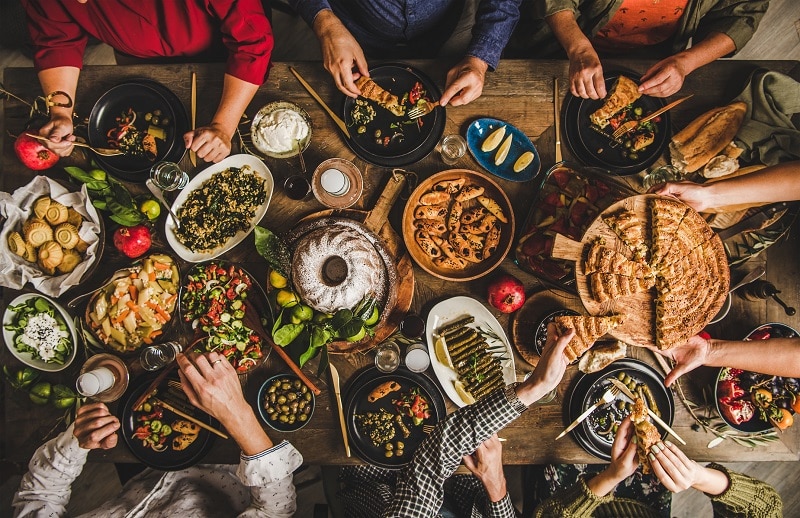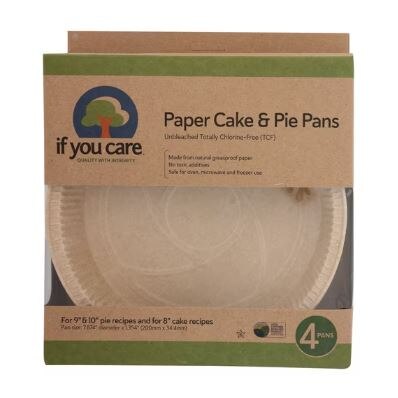The holiday season is known for being a period of time full of temptations. One of the biggest temptations many people struggle with during this time is food. Not only does it seem to be everywhere you go, but you are likely to run into delicious looking, sounding and tasting treats that only come around for a few weeks out of the year.
Yet if you’re someone who is trying to manage your weight or take special care of your health, managing holiday temptations can be especially tricky. While many people try to restrict themselves to avoid overindulging during this time, this practice rarely works in the long run. Learning more about intuitive eating and understanding how to practice intuitive eating during the holidays can be an alternative and effective way to support your health while also enjoying the flavors and festivities of the holiday season.
How to Practice Intuitive Eating During the Holidays
Eating during the holidays doesn’t have to be stressful. In fact, many times the stress surrounding holiday eating isn’t about the food itself, but your attitude surrounding it. By practicing intuitive eating, you can help ease any anxiety surrounding food and learn how to better tune into your body’s innate signals to guide your eating habits. This can allow you to have more peace and joy this time of year.
Here are some ways to practice intuitive eating during the holidays:
Give yourself unconditional permission to enjoy ALL holiday foods.
You don’t need to earn or be able to justify your food choices. The more that your body senses that restriction is coming, the more out of control you are likely to feel with holidays foods, or any foods for that matter. This can lead to chaotic eating, overeating and intense feelings of guilt during or after eating, which is the opposite of a peaceful or enjoyable eating experience.
This is why practices like avoiding holiday treats, or putting conditions on eating them such as only allowing yourself to eat them if you “saved calories” at other meals or exercised enough that day aren’t helpful. Rather, they usually end up making cravings and temptations even more intense.
Instead, practice food freedom. Tell yourself (and believe) that you don’t need to resist temptations, you can enjoy them! Try putting all foods on an even playing field, and allow yourself to eat the foods you like without judgment or shame. When you do, you may find that you actually end up eating less because you are no longer stuck in the vicious cycle of restriction → overeating → guilt.
Remove food labeling.
Similar to restriction, labeling foods as “good” or “bad” can subconsciously inflict guilt, and guilt can lead to more out of control eating. The moment you give into so-called “bad” foods, you may be tempted to give up and ignore your body’s cues, telling yourself you’ll try to be better tomorrow.
Instead, try challenging your internal “food police” by acknowledging that food has no moral value, and thus cannot be good or bad. Remember that no single food has the ability to make you healthy or unhealthy on its own. Rather, it’s the complete picture of your overall diet that matters most. Therefore, you can go ahead and enjoy turkey and mashed potatoes just like you can pumpkin pie or a special holiday appetizer.
Tune into the satisfaction factor.
With the busyness of the holidays, it can be so easy to eat mindlessly on foods that you don’t even really want. Without feeling satisfied, you are likely to continue to eat, searching for the right things to satisfy your true hunger or satisfaction levels.
That’s why it can be helpful to take a moment to assess how your body feels before eating, and to ask yourself what you truly want. What sounds good and how hungry are you? Remember that it is okay to eat sometimes without being actually hungry, and it is also okay to occasionally eat past the point of fullness. Rather than trying to be perfect in these areas, try basing your food choices on what actually sounds good to you. What will truly satisfy you?
When you get a handle on this, you will find that there is no need to overindulge just because the food is there or you won’t get it again until next year. Instead, you can savor your food choices and discover what being satisfied actually feels like.
Rid yourself of the diet mentality.
As tempting and common as it is, refuse to commit to dieting after the holiday season is over. While there is nothing wrong with setting healthy goals at the start of the new year (or any time of year for that matter), planning on starting a strict diet in the near future creates a mindset of restriction, and as mentioned before, this future restriction is a big part of the reason why you may end up feeling out of control around holiday foods.
Not only do a majority of diets not work in the long run, but they can have detrimental effects on both your physical and mental health. This is why things like the “anti-diet” movement have gained attention. There are a number of reasons why the holiday season is not the right time to start dieting.
Give yourself grace.
The holidays truly are a special time that are likely to bring interruptions to your normal eating habits during other parts of the year. This is okay, and there is no need to attempt to stick to your usual eating habits. Be gentle with yourself, and give yourself plenty of grace for navigating any triggers or struggles that arise during holiday meals and events. Remember that food is so much more than just a source of energy or nutrients. It’s also a way to connect with those around you, which should never be overlooked.
In summary
There are bound to be temptations during the holiday season. Rather than trying to avoid them, you can embrace them by shifting your mindset surrounding holiday foods. Practicing intuitive eating during the holidays can be a healthy and effective approach to making peace with food so that you can focus more on enjoying this special time of year.




